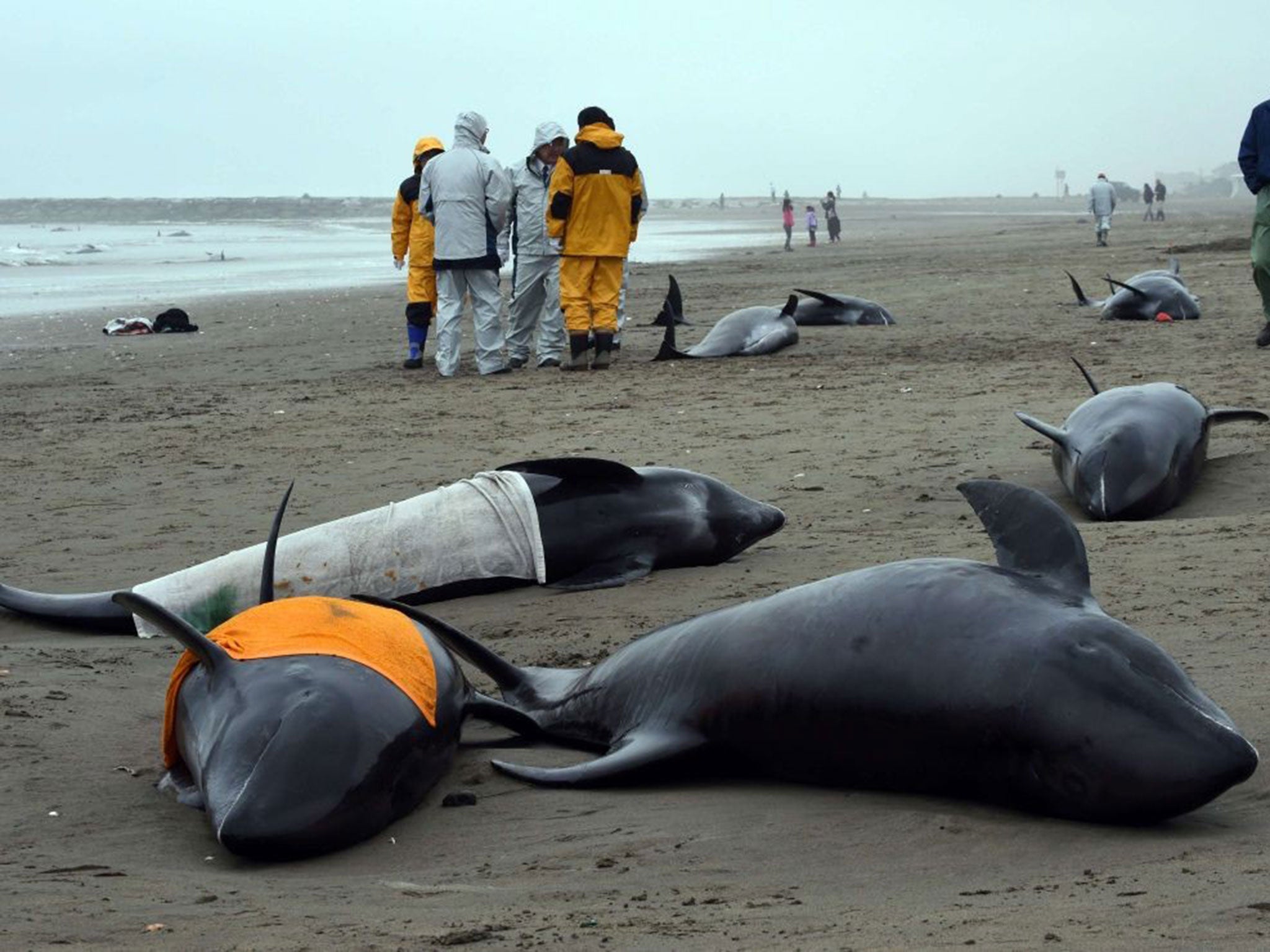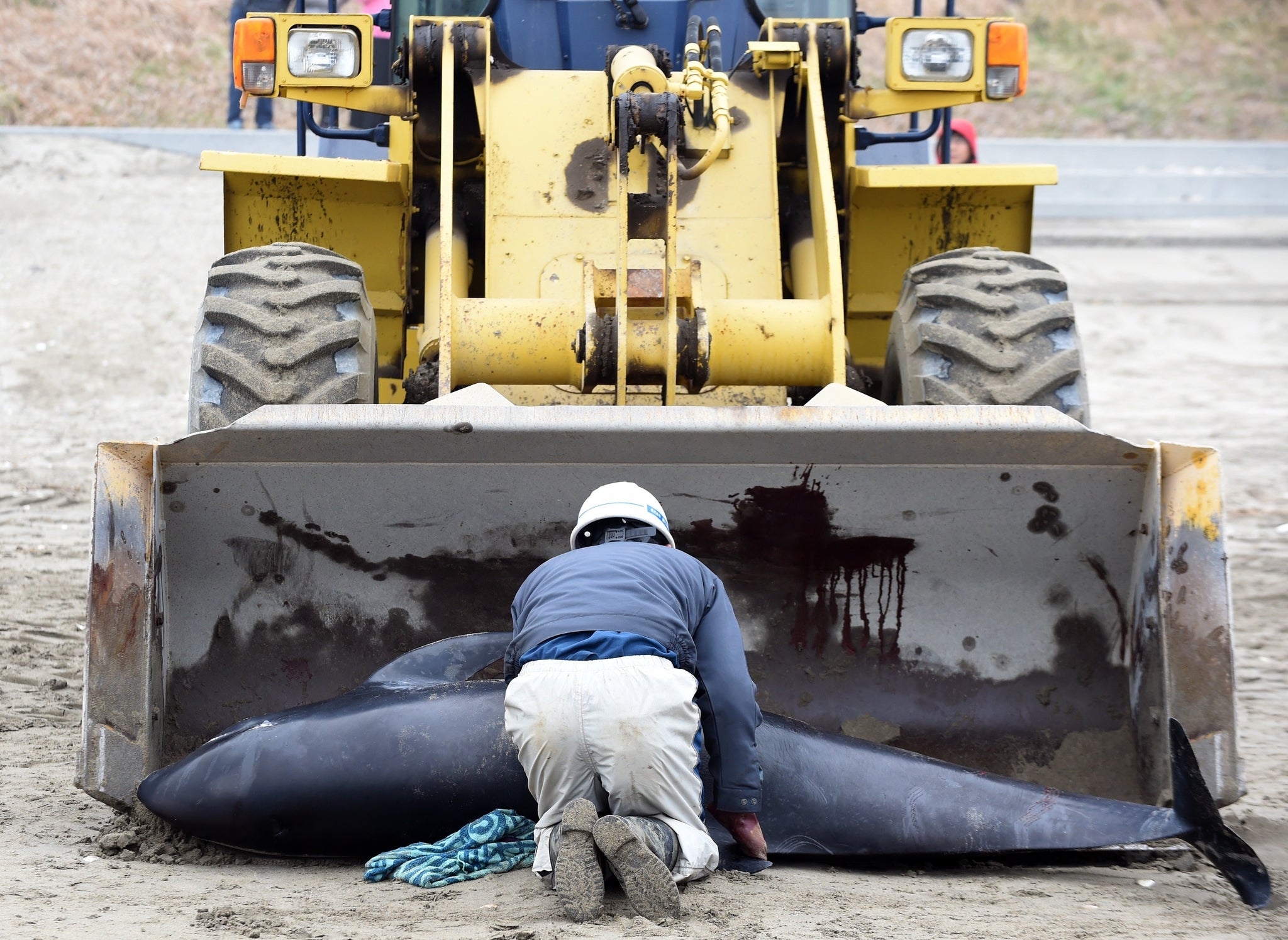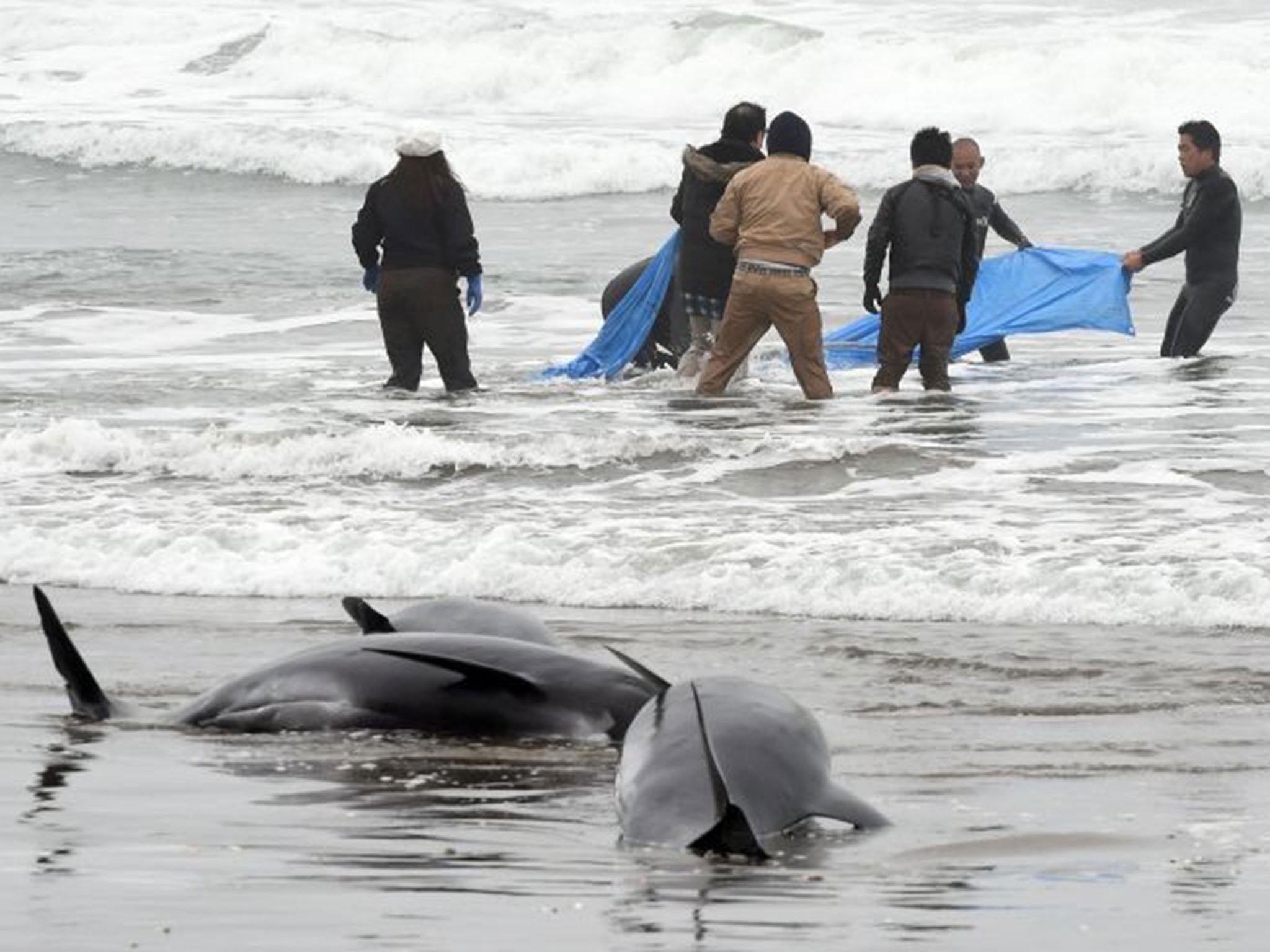Up to 150 dolphins die after being stranded on beach in Japan
Rescuers desperately tried to keep them alive with water and wet towels

Up to 150 dolphins stranded on a beach in Japan are feared dead after a day of frantic efforts to keep them alive failed.
The pod of melon-headed whales, members of the dolphin family, were beached on Friday along six miles of sand in Hokota, north-east of Tokyo.
Television showed dozens of rescuers and locals pouring buckets of seawater over the creatures and covering them with wet towels as they became weaker and weaker.
The dolphins, between two and three metres long, were scratched badly and bleeding from deep gashes in their skin, possibly caused by writhing on the sand.
Some were carried back into the water but pushed back by the tide soon after being released into the ocean.
The coast guard and police patrol boats transported three dolphins that were in relatively good health offshore and released them successfully but little hope was held for the rest.
Those that die were to be buried.

Tadasu Yamada, a cetacean expert at the National Museum of Nature and Science, told Japan's NHK public television station that the dolphins may have had a physiological or psychological problem and faced an unknown threat and panicked, driving them to the shore.
Smaller beachings have occurred around Japanese coasts, including some 50 dolphins on a nearby beach in 2011.
Melon-headed wales, also known as blackfish or the electra dolphin, are amongst the most common species involved in mass beaching.

They are extremely social creatures and can live into their 30s, according to the Whale and Dolphin Conservation charity, swimming in tightly packed herds of between 100 and 500 animals.
Additional reporting by PA
Join our commenting forum
Join thought-provoking conversations, follow other Independent readers and see their replies
Comments
Bookmark popover
Removed from bookmarks